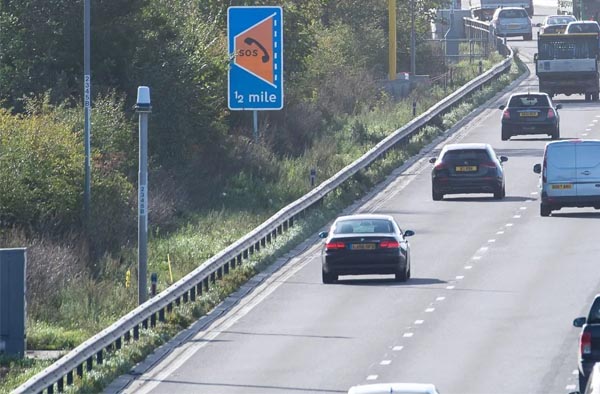National Highways has awarded a new £17m contract to the supplier of its stopped vehicle detection technology on smart motorways after admitting that the company’s intellectual property rights exclude any alternative bidder.
The contract with Navtech, which has always been the sole supplier of the technology, includes devices installed under the recent expansion to cover the whole National Highways network of all lane running smart motorways.
The deal involves support and maintenance services to existing radar units and new ones supplied under the contract for the targeted replacement of specific existing units and the option to upgrade the drive mechanism within existing radar units.
The contract notice gives the value of the procurement as £17.3m and explains that National Highways is relying on Regulation 32(2)(b) (ii) and (iii) of the Public Contracts Regulations 2015 to justify the use of the negotiated procedure without prior publication.

The first reason given is that Navtech ‘has exclusive (intellectual property) rights in the hardware and software already supplied to National Highways and do not share /re-sell/licence (sic) any of its designs/intellectual property with/to third parties’.
It states: ‘Without these, no other supplier could provide the support and maintenance services under the proposed contract to the pre-existing hardware. For the same reasons, no other supplier could provide upgrades to existing hardware.’
The notice further claims that any targeted replacement of hardware under the proposed contract must be capable of integrating and interoperating with the existing deployed radar solution and its wider operational technology environment, adding that this would not be possible without access to Navtech’s intellectual property.
It argues: ‘The only means by which another supplier could provide services and supplies similar to those under the proposed contract would be to replace the existing hardware with an alternative solution. Very significant investment has been made to deploy the existing hardware and the majority of these assets still have a number of years before they reach end of life.’
One ITS expert told Highways that the price of the contract seemed high but that it appeared that Navtech had been able to protect its commercial position from the start of its contract, which they suggested probably reflected National Highways’ ‘desperation’ to have a stopped vehicle detection solution in place.
Highways asked National Highways what mechanisms have been built into the contract to ensure that it provides value for taxpayers’ money.
A spokesperson said: ‘National Highways’ contracts contain stringent processes, including continual performance objectives, to ensure suppliers meet our high demands for service.’
There are 1,200 radar units, which have already been supplied and installed. The contact notice states that no decision has been made regarding a new drive mechanism, ‘so this would be incorporated into the contract as additional optional scope’.




